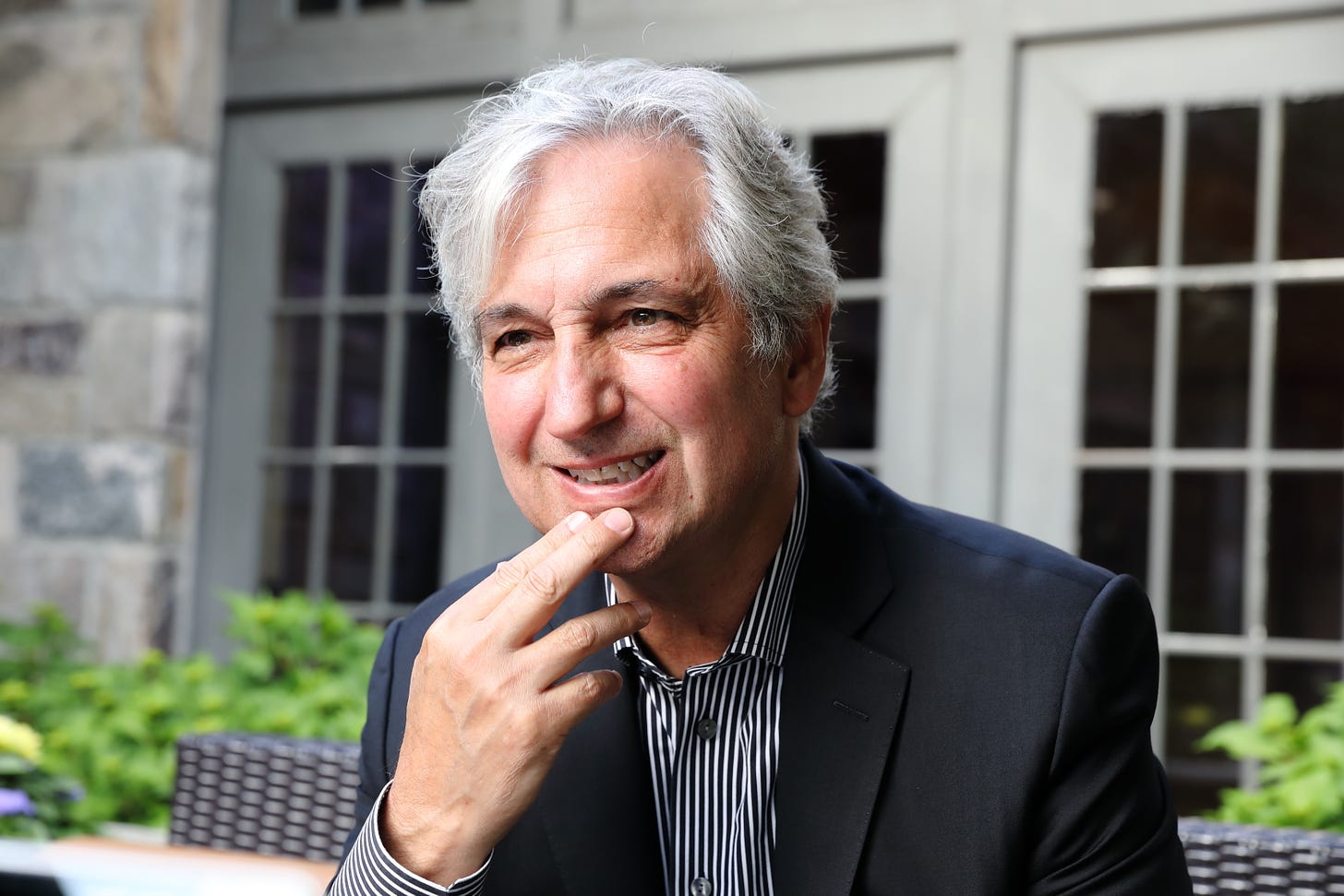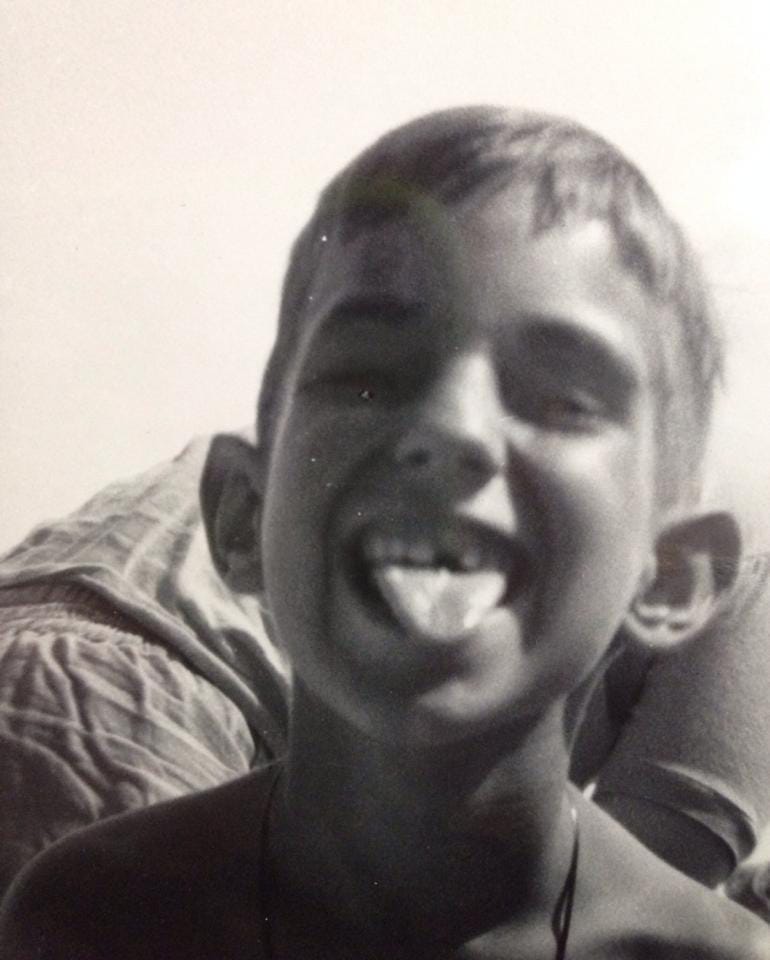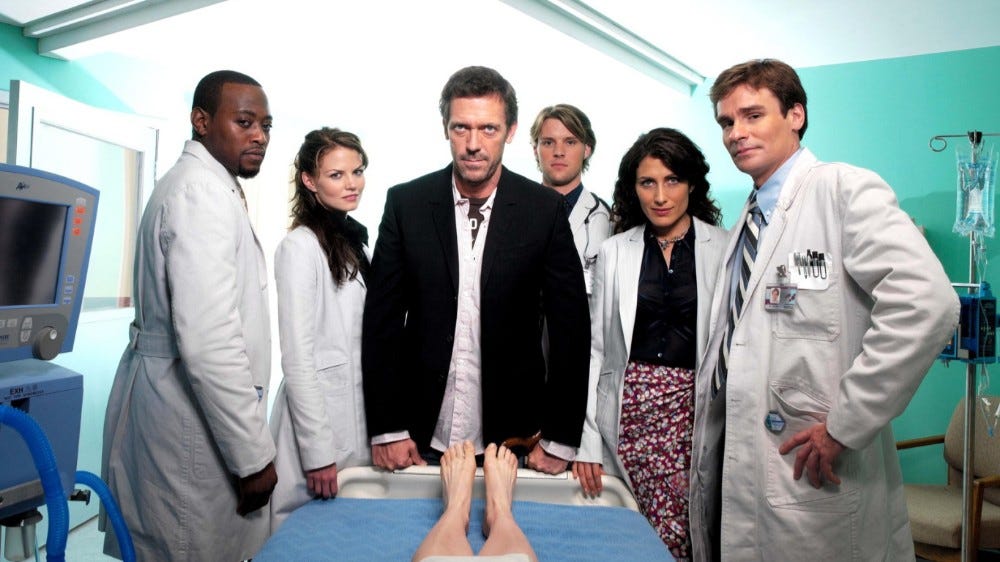Q&A: Screenwriter David Shore Has Questions About the Value of Art
The creator and showrunner of 'House' and 'The Good Doctor' shows up to our conversation with some hard-hitting questions of his own (in between discussing his craft, procedurals, and series finales)
The artist-on-artist conversations I have here at 5AM StoryTalk require a lot of research, as I’m sure you can imagine. But one of the more surprisingly challenging aspects of each of them is identifying the perfect first question to start with, one that I’m willing to bet will generate an unexpected, but intriguing answer that I can then begin to interrogate to better understand the artist in question. David Shore, the creator and showrunner of “House” and “The Good Doctor” — perhaps seeing what I intended — opted to reply by sending a line drive at the pitcher’s head. I’m the pitcher in this terrible metaphor. It only got more exciting from there, which I can’t really set up any better without ruining it other than by saying: this kind of back-and-forth of ideas, the kind of fireworks usually reserved for late-night arguments between friends and peers, is exactly why I launched this interview series.
It would be an understatement to describe David as a seasoned veteran of the Hollywood television industry. He’s been writing TV since the early Nineties, primarily in what is generally described as procedurals - series in which “cases of the week” are essentially confronted and solved by casts of characters. For example, between 1997 and 1999, he worked on three iconic series alone: “The Practice”, “NYPD Blue”, and “Law & Order”.
I draw attention to this training because there was a weird stretch in the early 21st century where the word “procedural” seemed to fall out of fashion. “Prestige television” had arrived, after all. But the thing is, nobody seemed to be paying attention to the fact that all the creators of that prestige TV learned how to do what they were doing on — and were still largely following the narrative rules of — network TV in the previous decade.
By contrast, David didn’t have to run to HBO or AMC to produce some of the best work of his career. He created “House” in 2004 for Fox, and with it one of the most iconic characters in TV history in Dr. Gregory House (played by Hugh Laurie). The series ran for eight seasons, all of which David showran, as well. This is a fairly unique, I should point out. Many creators don’t stick around with their series as they become long-running juggernauts like this. But David did the same thing again in 2017, when he developed “The Good Doctor” from a Korean medical drama and showran it for each of its seven seasons. Its series finale aired on May 21st of this year.
For artists at every stage of their creative journeys, you’re going to find a lot to be challenged by in this conversation. But I think that’s a good thing, as it’s very easy to get comfortable with platitudes about what we do and why it matters. David showed up for a real dialogue, one that would also benefit him as he worked through his own ideas about some of what we discussed. For screenwriters, in particular, there’s a lot to learn here from his thoughts on procedurals and series finales; you’re not going to find a much better instructor than him.
COLE HADDON: I’m going to start with a question that might feel out of left field. Can you tell me the last piece of art you experienced that made you feel like a two-bit hack, like you will never be good enough to pull off anything that amazing? It doesn’t matter what medium we’re talking about here. Extra points if you can tell me why.
DAVID SHORE: The Mona Lisa. Anything less just kind of reassures me of my talent.
Or…insert standard false humility answer, about my constant awe of so many other artists and their creativity and ability to move me.
Or…insert standard honest answer about how I don’t know or understand actual art.
Or…insert non-standard philosophical answer about my uncertainty about the value of art. That just as I choose to be skeptical when a finance bro tells me of the importance of markets, I am skeptical when an artist tells me of the importance of art. If it’s just beautiful, even if it’s brilliant, if it doesn’t have anything to actually say, then is that enough…?
CH: Well, shit, now I have to dig into that. I tend to view art as a pretty big tent. I don’t think art has to have anything to say, mostly because I feel like even in the absence of meaning, a culture nevertheless imbues it with meaning given how it reacts to the artwork, whatever it is. Do you spend much time even thinking about yourself as an artist, or do you prefer something more like “storyteller”? I mean, if you’re suggesting you don’t understand “actual art”, does that mean you wouldn’t refer to your own work as such?
DS: We constantly hear that. That art uplifts, that art inspires, that art makes everything better. And I’m not saying that isn’t true. I’m just saying…maybe…it’s a big fat lie. A lie we tell ourselves. To feel good. Better than good. To feel superior. All while producing something that, by definition, has no inherent value. By no “inherent value,” I probably more accurately mean “no tangible value,” but my argument sounds stronger this way.
CH: You don’t think art has an inherent – or tangible – value to a culture?
DS: I’m saying, it’s self-serving. I’m saying it’s a little condescending - to everyone else. That what they do is somehow less valuable than what we do because its value is tangible. Every other job – literally every other job – changes people’s lives. Because it’s not art. And we shit on it for that. I’m saying we shouldn’t be the ones who get to decide.
Every work of art is unique. So what? Every work of art is personal. So what? That’s good for the artist’s ego, but beyond that…what? When I see a great painting or a great sculpture or hear great music or watch great dancing – when I see anybody doing anything with excellence – it’s always impressive. And I greatly enjoy it. But do I walk away changed? I don’t think so.
CH: I’m scribbling down follow-up questions as you speak.
DS: Oscar Wilde said that there is no such thing as moral art or immoral art - there is only good art and bad art. He said that while on trial. He went to jail for his art. So, obviously somebody thought he was wrong – somebody thought that art can change lives for good or for bad.
No doubt studies have been done to see if there’s a correlation between experiencing art and personal well-being. And societal health even. I suspect that there is a correlation. I’ll tell you whose work I know has the power to change people - the academics who did those studies. But is that correlation, whatever it may be, between art and well-being a result of the experience of art or simply a function of “all work and no play makes Jack a dull boy”? Is there a difference between an hour at a museum and an hour of pickleball?
CH: I’ve never played an hour of any sport that made me look at the world in a different way.
DS: But I suspect that no hour at the opera, nor no hour looking at paintings has made you look at the world in a different way – beyond the limited scope of being temporarily roused to emotion or being impressed by the skills of others – both of which are also frequent byproducts of attending a sporting event.
CH: Art is obviously a subjective experience, but I’d argue I’ve been changed by encounters with art. I think the vast majority of my moral compass, or at least how I articulate it, came from films and books and even comic books. A lot of my fears, too. I still can’t swim in the ocean beyond my waist because of Jaws. My loss of faith absolutely started with Close Encounters. But to be clear about what you’re saying, you disagree with Wilde’s accusers that art can change lives for good or bad?
DS: I do know that there are works of literature, movies, and TV shows that have changed people. I like to think I’ve had a hand in some of those. But I don’t think it’s because of the “art”. I think it’s because of the ideas hidden in the art.
CH: So, would it be fair to say you, in fact, agree with Wilde rather than his accusers and believe that there is good and bad art? But following up on your last comment, it seems the position you’re taking is that good art can change lives because good art typically has powerful ideas hidden within it?
DS Wilde was a genius. So, I am loathe to second-guess him or question his motives. But I’m going to do the latter. He was facing criminal charges for his art. And whether art is inherently valuable or not, it is speech. And censuring speech on moral grounds is fraught. Arguably, immoral. I think that was his point. That if you judge art on moral grounds, you will get bad art - and bad morals.
And yes, again…art can change lives if it has powerful ideas hidden within it. But it’s the ideas that are changing people’s lives. Not the art. The art is simply a very effective delivery tool.
CH: We’re going to inevitably come back to elements of this discussion about art, but I think it’s important to contextualize your views with a bit of life experience. You grew up in London, Ontario, just a couple of hours from where I grew up – albeit on a different side of the U.S./Canadian border. It’s a lovely corner of the world, I think. Probably a bit sleepier when you were a kid. What does it feel like in your memory of it back then? How did you fit into the world around you in your mind?
DS: The word is probably “bucolic”. That kind of working- to middle-class environment. Our world was our world; the larger world just provided us with TV and movies and music. And I definitely felt like an outsider. I might not have described it that way back then. I just figured I didn’t have it all figured out while everybody else did. The truth is, they undoubtedly didn’t have it figured out either, but I think I may have been quicker to the notion that there may be something to figure out.
CH: I felt like an outsider throughout my childhood. TV and film were my windows to the world, too. I couldn’t get out fast enough, I think. In your case, you became a lawyer. I’m curious about the decision to study law and how you ended up in Hollywood. What I mean is, was screenwriting something that had been calling to you earlier in your life and you just tried to ignore it, or did that urge to write develop once you became a professional?
DS: It never even occurred to me to write. Literally. I didn’t so much reject writing as an option as I failed to realize it was an option until a friend said they were moving to Hollywood to write. My reaction was more or less - oh, is that something a human being can do? And it went from there.
CH: You described feeling like an outsider as a kid in Canada. Did you feel more at home in Hollywood? I think what I’m really getting at is, did the arts hold any mystery, any magic for you back then, or were you as dubious of how we talk about art – the self-serving quality of it, that you described earlier – as you are now and, thus, still felt like something of an outsider in your new career?
DS: Good question. In the sense that I’m not sure I’ve really thought of it before. I don’t think so. I think it’s the plight of most writers to not feel comfortable really anywhere.
As you might have guessed from my earlier answers, artsy communities…bit smug…or at least are a little too comfortable with themselves and their views of the world. In fairness, so are non-arts communities. But sometimes the latter have the advantage of not having pat answers because they haven’t asked the questions in the first place.
CH: See, I’d argue that’s one of the roles of the artist in society – to ask the questions others aren’t asking for whatever reason. Of course, that lends itself to smuggery or, when it’s not, something that can easily be confused for it.
DS: And I’d say that’s the role of the philosopher in society. And many artists are philosophers hiding behind their art - because if there’s anything more smug than calling yourself an artist, it’s calling yourself a philosopher. To allude back to an earlier question about Wilde’s accusers, some might say that the art and the ideas are co-dependent, that neither can exist without the other. That may be true. Sometimes. But it’s not what makes art art.
CH: Let’s talk about procedural dramas, which I think it’s fair to say you’re something of an expert on – and which is how I first became truly conscious of your work. Cable and streamers changed TV in a lot of ways I think we’re just beginning to see some pushback against from audiences. Specifically, audiences that miss the trusted relationships they could forge with beloved characters over lengthy seasons. What do you make of where we’ve been and where TV might be going in this regard?






